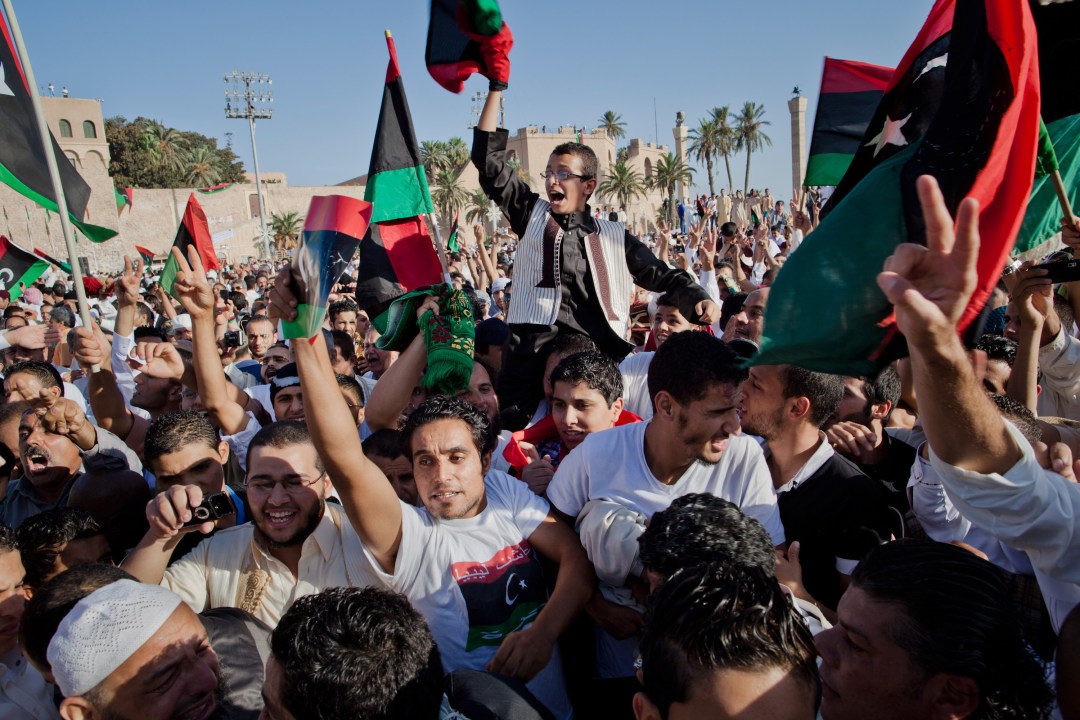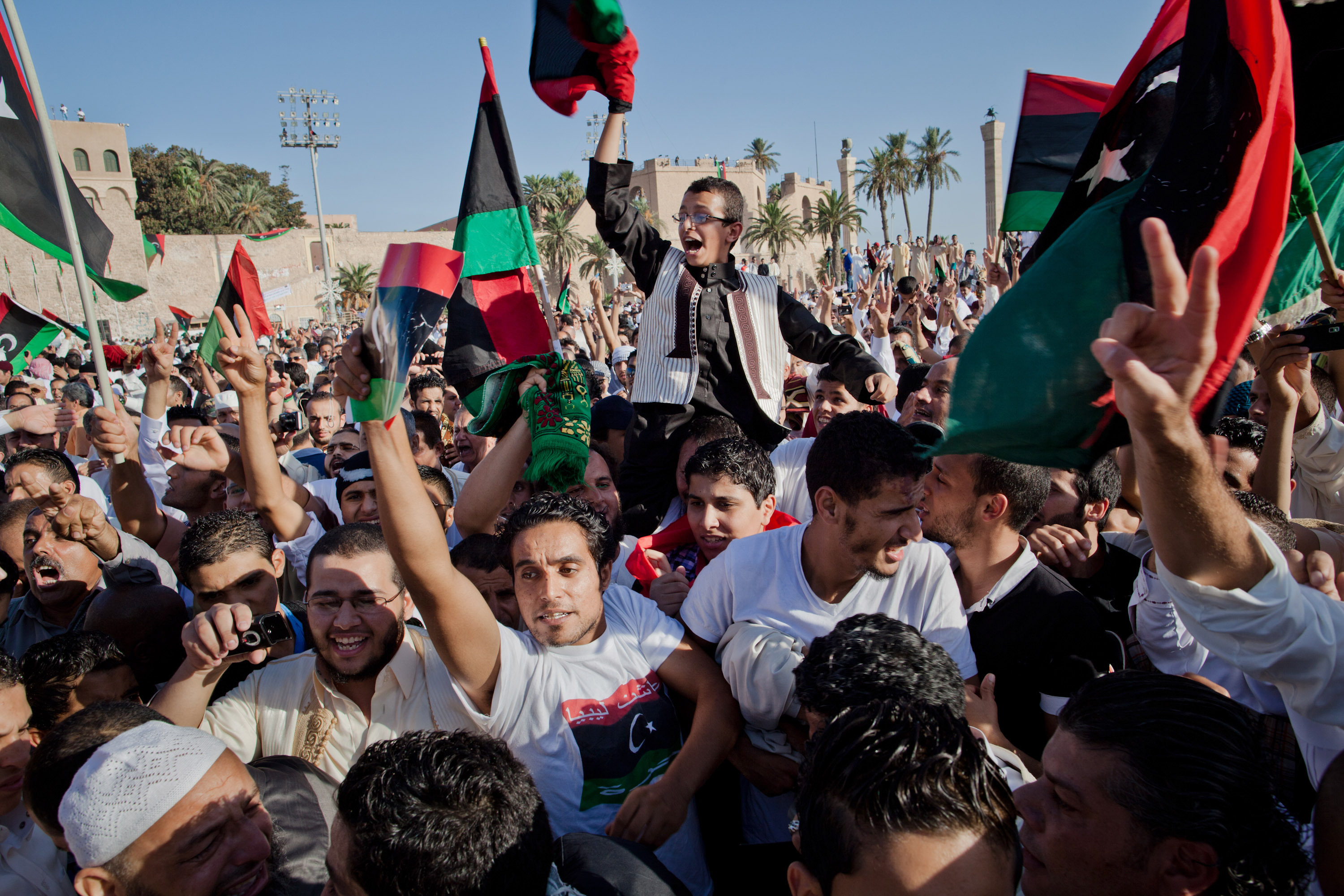 Tripoli
Tripoli
East is East and West is West, as Kipling once reminded us, but in Libya at least the twain have certainly met. For the past six months Free Libya has been headquartered in eastern Libya, or ancient Cyrenaica. When Tripoli started sliding out of Gaddafi’s control on 20 August, the dribble from east to west began. It was given added oomph on Wednesday with the arrival in Tripoli of the interim prime minister Mahmoud Jabril. Now we’re going to see if Libyans can upset the gloomiest predictions once again.
There have been all sorts of received wisdoms about Libya and the NATO campaign since the revolution kicked off in February. We have heard how Al-Qaeda was infiltrating the freedom-giddy rebels. Journalists were quick to diagnose a military “stalemate”. The rebels were a ragtag bunch of no-hopers. We have heard how tribal divisions preclude a democratic future and condemn Libya to an unhappy mess. Strangely, some of these opinions – tribes and Al-Qaeda – were actually propagated by Gaddafi in a typically canny way to sow disunity, but many people still bought them.
The East/West question is a more serious issue for Libya’s fledgling political leadership. As a member of the National Transitional Council told me yesterday, “It’s definitely there.” There are grumbles about what is seen in Tripoli as an eastern-heavy council, perhaps inevitable given the geography and progress of the revolution. “The guys from Tripoli will eat the Benghazi crowd like sharks,” said the official. “You’ve got to know what it was like here in order to make things better.” You hear different version of how Tripoli was liberated, too. The neighbourhood of Suq al Juma claims a leading role, as do a number of neighbourhoods. The Misratah Brigade and the Berber fighters from the Jebel Nafusa who swept down from the mountains don’t see it that way. These sorts of differences are inevitable and not necessarily significant.
Balancing the respective interests, cultures, prejudices and power-plays of two halves of the country whose histories have not been entirely happy may prove the greatest challenge for the new Libya. For most of their lives, Cyrenaica and Tripolitania have existed separately. Punic west and Greek east operated in separate spheres, trading north-south rather than east-west thanks to tricky seas, lee shores and poor harbours. The Romans kept them as separate provinces with their own governors, a policy later echoed by the Ottomans. Unity between east and west only came at the barrel of Italian guns after their 1911 invasion and the bloodiest, 20-year military campaign that was fought officially senza quartiere. And unity has been preserved for 42 of the country’s 60 years as an independent country under Gaddafi. Libya is a young country.
Writing in The Spectator earlier this year, Peter Jones, that splendid guide to the ancient world, argued that given its particular history it was time to let Cyrenaica go its separate way. Yet no one in Libya I have spoken to shares that view. The widely expressed position for the past six months in Benghazi has been “Tripoli is our capital”. And in Tripoli it is striking that you will struggle to find a mention of 20 August among the plethora of red, green and black graffiti. The one date everyone refers to and paints on walls is 17 February, the day Benghazi rose. Symbols matter, and this one says a good deal.
At this stage the spirit of inclusiveness in Tripoli is remarkable. It will need to be maintained to keep the transition on an even keel. The less quoted end of Kipling’s famous poem offers
hope.
“But there is neither East nor West, Border, nor Breed, nor Birth, When two strong men stand face to face, though they come from the ends of the earth!”







Comments